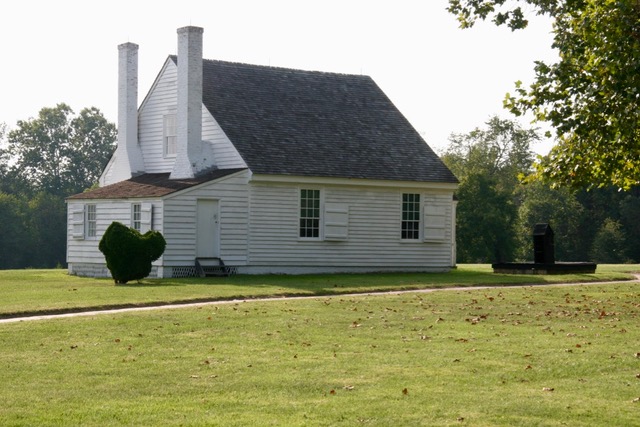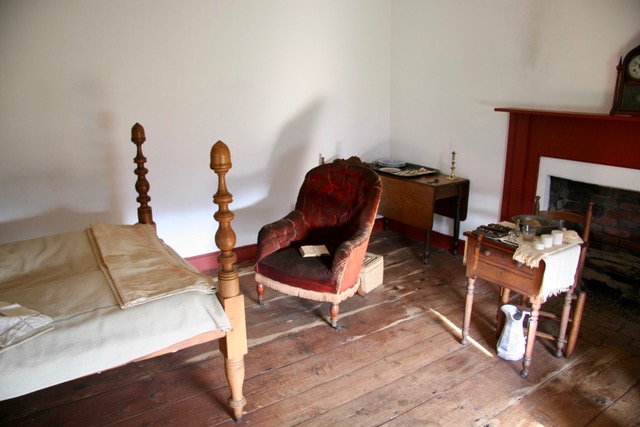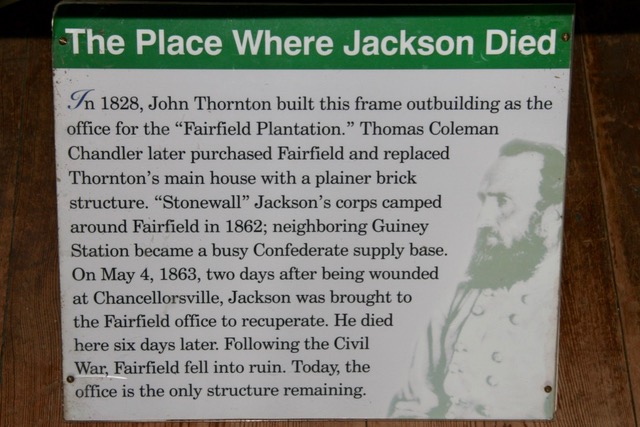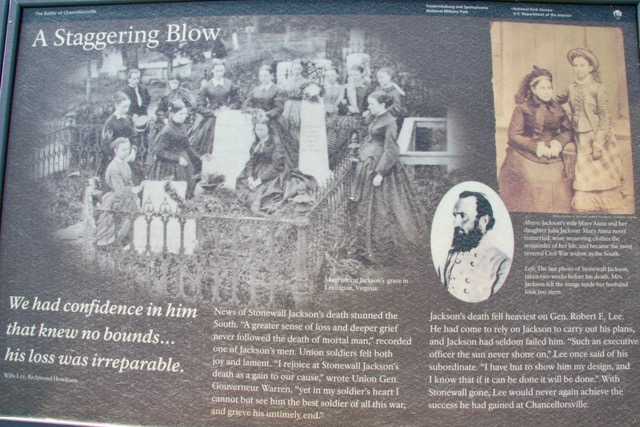
Although no battle per se happened at this place, Guinea Station is an important location in the history of the Army of Northern Virginia. As a railroad station it served as a Confederate supply depot. Late in 1862 Confederate troops camped there. There was one incident here though was was of great importance to history. During the Battle of Chancellorsville, General Stonewall Jackson was wounded by friendly fire the evening of May 2nd, resulting in amputation of his left arm. General Lee ordered him transferred by ambulance the twenty-seven miles to Fairfield Plantation at Guinea Station, a journey that took twelve hours. After initially improving General Jackson succumbed to pneumonia and died with his wife at his side on May 10, 1873 shortly after seeing his six month old daughter Julia for only the second time. The Confederacy was dealt a “staggering blow” and General Lee, in his own words, lost his “right arm.” The building in which Jackson died has been preserved as a shrine through the years. Now the only building from the 1860s remaining on the property once owned by Thomas Coleman Chandler is the one in which the Jackson died. Administered NPS, it is furnished with the same bed and blanket that Jackson used. We visited and had the opportunity to ponder on some of the great personal tragedies that lie beneath the military maneuvering and the politics of war.









0 Comments